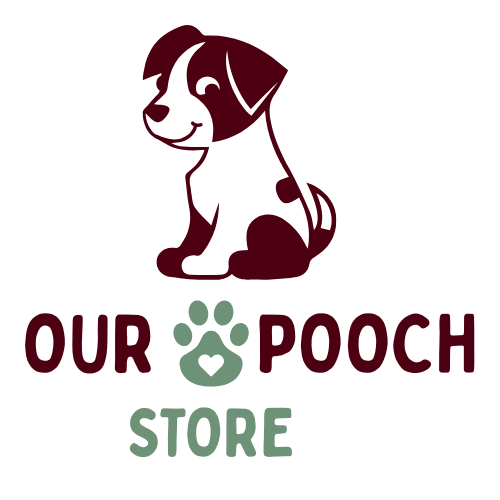
🦷🐶 Dental Health for Dogs: Best Practices, Products and Myths Debunked (and Why It’s So Important)
🦷🐶 Dental Health for Dogs: Best Practices, Products & Myths Debunked (and Why It’s So Important)
When it comes to keeping our furry friends happy and healthy, dental care often takes a backseat to grooming, walking, and feeding routines. But here’s the truth — dental health is just as important as diet and exercise for your dog’s overall wellbeing.
According to veterinarians, over 80% of dogs show signs of dental disease by age three. Left untreated, oral issues can lead to pain, infection, and even serious health conditions affecting the heart, liver, and kidneys.
Let’s dig into the best practices, common myths, and must-have products to keep your dog’s teeth sparkling clean and healthy.
🐾 Why Dental Health Matters
A dog’s mouth is a gateway to their overall health. Plaque, tartar, and gum disease can silently cause major problems if ignored.
Here’s what good oral care prevents:
-
Bad breath (halitosis) — a sign of bacteria buildup.
-
Tooth loss — caused by severe periodontal disease.
-
Painful chewing and eating difficulties.
-
Infections that can spread through the bloodstream.
-
Organ damage — bacteria from the mouth can travel to vital organs like the heart or kidneys.
💡 Pro Tip: A healthy mouth means a longer, happier life. Dogs with clean teeth tend to live up to two years longer than those with untreated dental disease.
🪥 Best Practices for Dog Dental Care
Consistent care is the key to prevention. You don’t have to be a pro groomer — just a caring pet parent with the right tools!
1. Brush Regularly
Brushing your dog’s teeth 2–3 times a week (ideally daily) helps remove plaque before it hardens into tartar.
-
Use dog-specific toothpaste (never human toothpaste — it contains toxic ingredients like xylitol).
-
Try enzymatic toothpaste, which helps dissolve plaque naturally.
-
Use a finger brush for beginners or a double-headed toothbrush for larger dogs.
Recommended Product: Dr. Milou Ultrasonic Home Pet Oral Care Set
2. Use Dental Chews & Toys
Dental chews help mechanically clean teeth while satisfying your dog’s urge to chew.
-
Look for VOHC (Veterinary Oral Health Council) approved chews.
-
Rubber toys with ridges or textures can help reduce buildup, too.
-
Always supervise chewing to prevent swallowing large pieces.
3. Incorporate Dental Water Additives
Water additives help control bacteria and freshen breath.
-
Add the recommended dose to your dog’s water bowl daily.
-
Great for dogs who dislike brushing!
4. Schedule Annual Vet Cleanings
Even with great home care, a professional cleaning ensures deeper care. Vets can scale and polish teeth to remove tartar below the gumline.
5. Feed a Balanced Diet
Crunchy kibble and dental-specific diets can reduce plaque accumulation compared to soft, sticky foods.
🧴 Recommended Products for Canine Dental Care
At Our Pooch Store, we’ve curated products to make dental care easy, effective, and fun for your pup:
-
Dog Toothbrush & Toothpaste Kits – gentle, safe, and tasty for your dog.
-
Dental Chews & Treats – keep teeth clean while rewarding good behavior.
-
Water Additives – effortless oral care between brushings.
-
Chew Toys for Dental Health – durable, teeth-cleaning playtime fun.
Recommended Product: Pet Fresh Breath & Oral Care Solution – Dog & Cat Water Additive for Clean Teeth, Stain & Odor Removal, Earwax & Ear Odor Cleaner
🦴 Myths About Dog Dental Care — Debunked!
❌ Myth 1: “Dogs don’t need their teeth brushed.”
Fact: Brushing is the single most effective way to prevent dental disease. Just like humans, dogs accumulate plaque daily.
❌ Myth 2: “Dry food cleans teeth.”
Fact: While kibble helps a bit, it’s not a replacement for brushing or proper dental care routines.
❌ Myth 3: “Bad breath is normal in dogs.”
Fact: Persistent bad breath is usually a sign of bacteria or dental disease — not normal!
❌ Myth 4: “My dog’s teeth look fine, so they’re healthy.”
Fact: Dental disease starts below the gumline — often invisible until it’s advanced.
❌ Myth 5: “Small dogs don’t need dental care.”
Fact: Smaller breeds are actually more prone to dental issues due to crowded teeth and smaller mouths.
❤️ The Bottom Line
Dental care isn’t just about fresh breath — it’s about keeping your dog pain-free, healthy, and full of energy. A few minutes a week can prevent years of discomfort and costly vet visits.
So grab that toothbrush, stock up on dental chews, and make oral care a bonding experience. Your pup will thank you — with a happy smile and tail wags to match!






